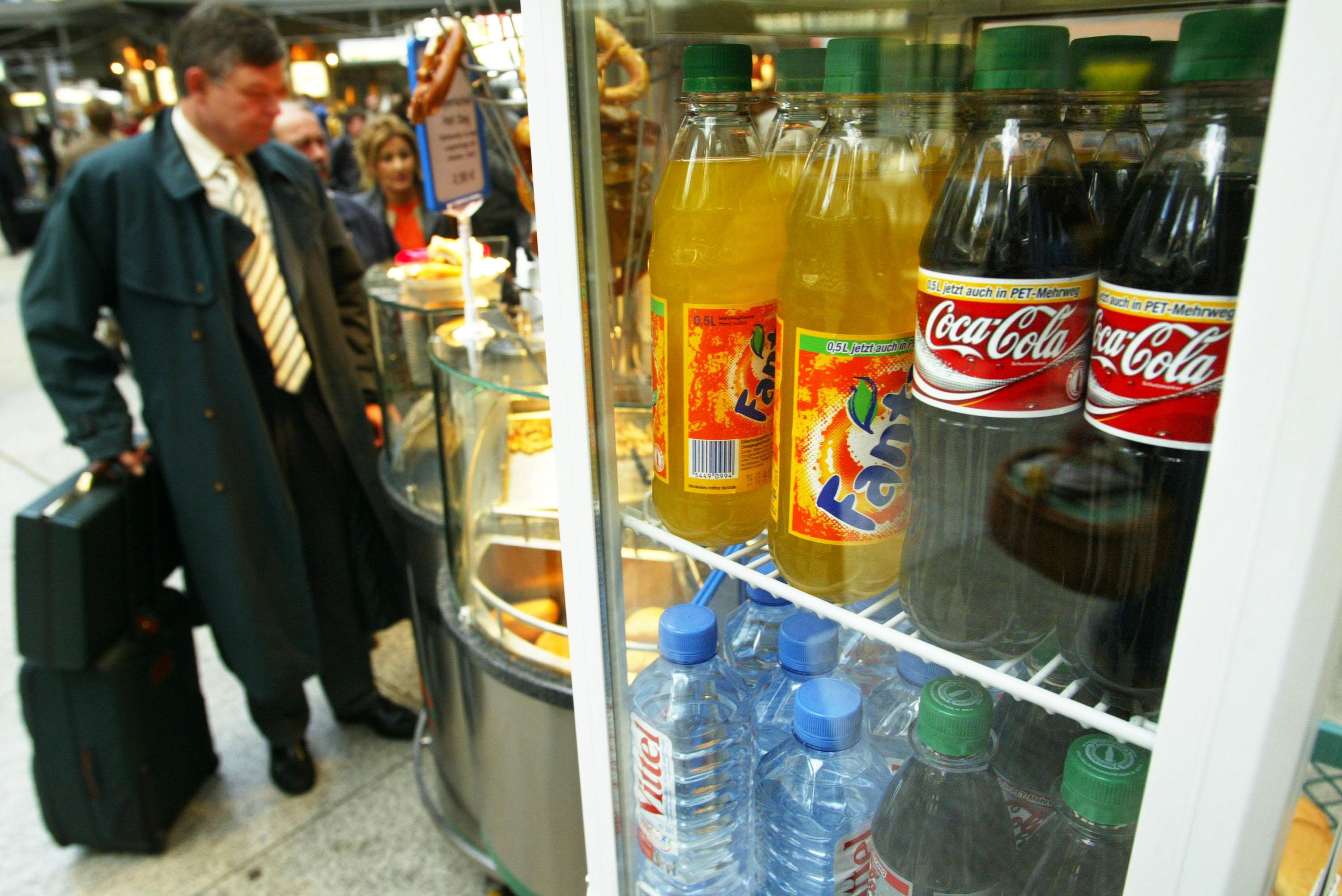Correction, May 6, 2014: This post originally implied that Coca Cola drinks contain a flame retardant chemical that is unsafe for human consumption. Brominated vegetable oil, which Coca Cola is removing from its soft drinks, is different from brominated flame retardants, and it has not been demonstrated to be harmful in humans. This post has been corrected to reflect this.
Coca-Cola announced Monday that it would stop using brominated vegetable oil in soft drinks such as Fanta, Fresca, and Powerade. The move comes in response to consumer complaints: The compound is related to compounds found in fire retardants and is banned in Europe, though it has not been demonstrated to be harmful in humans. (Two oft-discussed incidents that may or may not have involved adverse effects of “BVO” consumption involved people who drank liters of soft drinks per day.)
Small quantities of brominated vegetable oil are legally allowed in some drinks to ensure even flavor distribution, Reuters reports. But consumer pressure has mounted and already prompted PepsiCo to announce earlier this year that it’s dropping the ingredient from its drinks.
Coca-Cola says it has already dropped the ingredient from two of its flavors of Powerade earlier this year. “The company expects to remove it from its Fanta and Fresca sodas, and as well as citrus-flavored fountain drinks, by year’s end for U.S. consumers,” according to Reuters. “The company said it will also remove the ingredient in its products sold globally but did not provide a timeline.”
Reuters says Coke plans to use “a replacement sucrose acetate isobutyrate, which it has used for over a decade in some drinks, or glycerol ester of rosin, a ingredient commonly found in chewing gums and drinks.”
